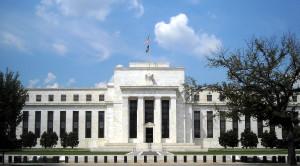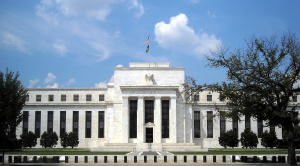by Bill Bonner – Bonner and Partners.com:
Here’s a firsthand report directly from one of our dear readers:
Greetings from Greek islands. Although news seems bad from reading papers etc., life here is rolling along. I am vaca with family and pulled out 500 euro from ATM last night (Sunday, June 28) on island Hydra. Restaurant accepted Amex. So far so good.
Yes, so far, so good.
But the steamroller is still rolling.
Americans aren’t really interested in what happens to the Greeks – unless they happen to be on “vaca” there. But the chief obstacle in Greece is the same one in China and in the United States: too much debt.
The Germans and Greeks can blab, hondle, and bluff all they want. It won’t go away.
According to financial services company Credit Suisse, Greece has total debt – including households, businesses, and government – equal to 353% of GDP.
But U.S. debt is even higher at 370%. Germany, that supposed paragon of financial virtue, is at 302%. And China, with its state-controlled economy, is at 250%.
All are in good shape compared to Britain. It has total debt equal to 546% of GDP. Japan is in an even worse state. Its total-debt-to-GDP is 646%.
And if the Credit Suisse numbers are correct, Ireland is off the charts with total debt equal to more than 1,000 times GDP.
But the Greeks are feeling the heat because they can’t service their public sector debt right now. They can’t pay it for the very same reason they got it in the first place – false pretenses.
First, they claimed they met the guidelines for entry into the euro zone. Then they claimed they could afford to live in the style to which they became accustomed. Then they claimed they would pay back the money they borrowed to make payments on the debt they couldn’t afford.
None of it was true.
Now, with their backs to the euro wall, they can’t “print their way out” of their predicament. Their creditors expect them to pay up. The Germans, in particular, see it as a moral responsibility.
“That’s the difference between beer drinkers and wine drinkers,” says a friend. “The beer drinkers pay.”
The Beer Theory of Credit Quality
Bond investors believed the euro promised stability and security. It was backed not by the wine drinkers, but by the beer drinkers.
We’re not sure how Ireland – a big beer-drinking country – fits into this story. But our friend notes that the countries of Northern Europe – where they also drink mostly beer – tend to repay their debts. Southern Europe – Spain, Italy, and Greece – are bad credit risks.
On the streets of London at this time of year, people stand on the sidewalks with barrels of beer in their hands. And on the Fourth of July holiday, more Americans will raise glasses of beer than wine.
Still, we doubt the “Beer Theory of Credit Quality” will hold up under the pressure of a generalized credit contraction.
In Europe, the beer drinkers of the north sold automobiles, for example, to the wine drinkers of the south. Then, when the winos couldn’t pay, the beer swillers gave them more credit.
Now, when the Greeks still can’t pay, the Germans are getting huffy about it.
And everybody is nervous. If the Germans put the screws to the Greeks, they invite problems with the rest of the wine drinkers.
What the Greeks owe is peanuts compared to what the Italians and Spanish owe. And if the credit stops, who’s going to buy the Germans’ BMWs, Audis, and Mercedes?
Nobody wants the credit to stop.
Star-Crossed Debtors
That is also true of another pair of star-crossed debtors – the Chinese and the Americans.
Like the Greeks and Germans, the Chinese lent, and the Americans spent.
And now, what a surprise… it’s the Chinese who seem to be in trouble.
Wait, what do the Chinese drink?
We don’t know. But the Shanghai index fell 17% in the last 18 days. And it dropped another 5% yesterday. (More on that below in today’s Market Insight.)
According to the McKinsey Global Institute:
China’s debt has quadrupled since 2007. Fueled by real estate and shadow banking, China’s total debt has nearly quadrupled, rising to $28 trillion by mid-2014, from $7 trillion in 2007.
Three developments are potentially worrisome: half of all loans are linked, directly or indirectly, to China’s overheated real-estate market; unregulated shadow banking accounts for nearly half of new lending; and the debt of many local governments is probably unsustainable.”
McKinsey says total world debt is now more than three times global GDP.
That is a “macro obstacle” about as big as they get. It is a steamroller.
And it is headed for us all… no matter what we drink.
Article originally posted at Bonner and Partners.com
















